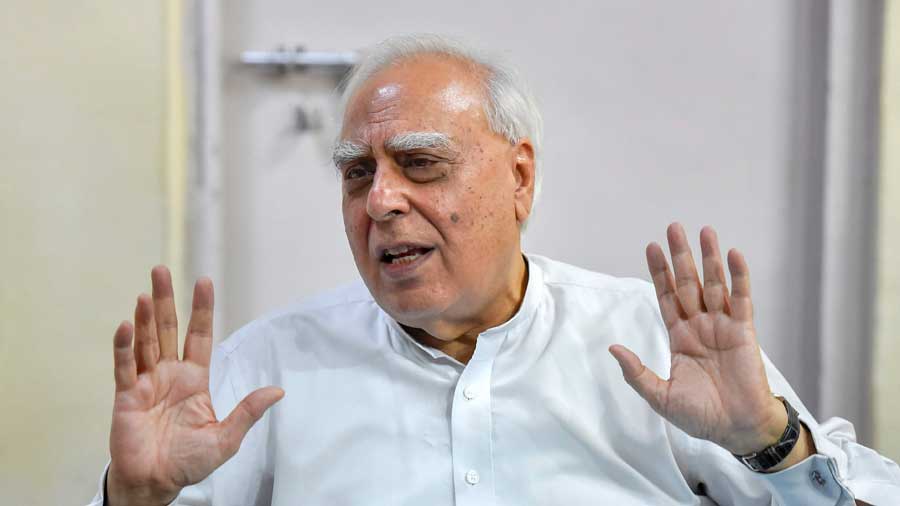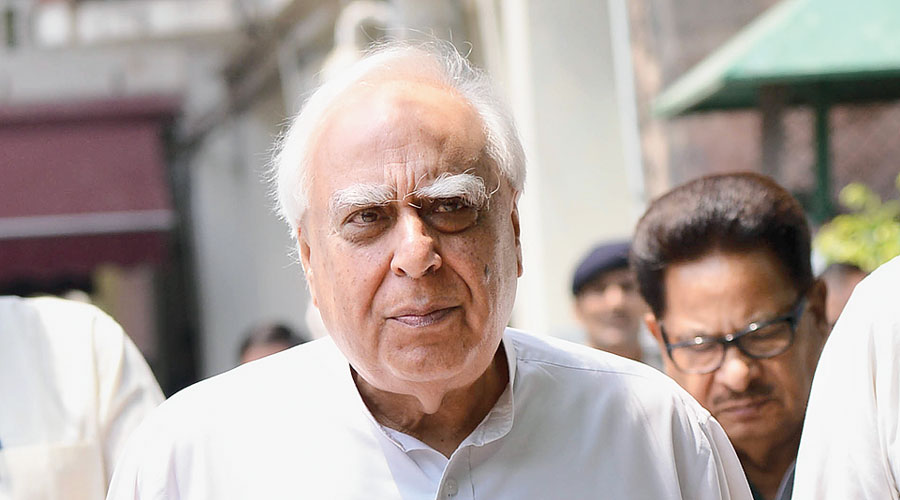Veteran lawyer and Rajya Sabha member Kapil Sibal has said that “sensitive” cases are now invariably assigned to a few select judges in the Supreme Court, and the legal fraternity usually knows what the judgment would be.
“It is a misconception that you get solutions in the Supreme Court,” the former Union law minister said at a “people’s tribunal” on the “judicial rollback of civil liberties” at the Constitution Club on Saturday.
“I have no hope from this institution — jis court mein judge bithaye jate hain (where judges are assigned cases) through a process of compromise,” he said.
“The Chief Justice of India decides which case will go where, when they will be heard. Such courts cannot be independent. Sensitive cases, jisme problem hai (which are problematic), invariably go to a select few judges. We know what the judgment will be.”
He added: “The situation will not change if people don’t change their mindset. In India we have mai-baap culture: people fall at the feet of the powerful. But the time has come for the people to come out and demand protection of their rights.”
Sibal’s comments come four years after four then senior apex court judges — Justices J. Chelameswar, Ranjan Gogoi, M.B. Lokur and Kurian Joseph — had held an unprecedented news conference to complain about the allocation of key cases by then Chief Justice Dipak Misra.
The four judges had added that they were convinced that unless this institution was preserved and it maintained its equanimity, “democracy will not survive in this country….”
Several other senior lawyers such as Dushyant Dave and Prashant Bhushan too have raised the issue of selective allocation of cases.
Sibal had last month told PTI that some members of the judiciary had “let us down” and “I hang my head in shame” to see the judiciary allowing “the rule of law to be infringed with open eyes”.
He had not mentioned specific court orders or verdicts but said: “…We have seen in the recent past judges rendering findings on matters that were not argued before them, judges rendering findings in matters which are not appealed against and some judges… upholding executive actions that are indefensible.”
On Saturday, Sibal criticised the recent apex court verdict on the Prevention of Money Laundering Act (PMLA) that upheld the Enforcement Directorate’s extraordinary powers of seizure and arrest.
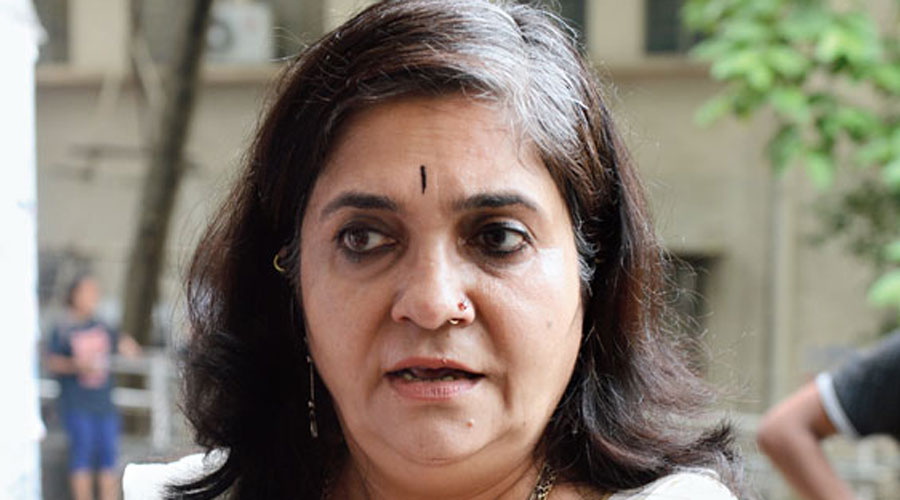
Teesta Setalvad, rights defender, now in jail.
He also flagged the prolonged detention of journalist Siddique Kappan, saying it had no legal basis, and referred to the arrest of rights defender Teesta Setalvad.
“What evidence do you have against Kappan? He was going in a car to Hathras to report on a rape case. You slap 100 cases on him. How can you get bail in 100 cases? In the Teesta case, there was no argument. In fact, I was told, ‘Aap usme mat padiye (Don’t get into this)’.”
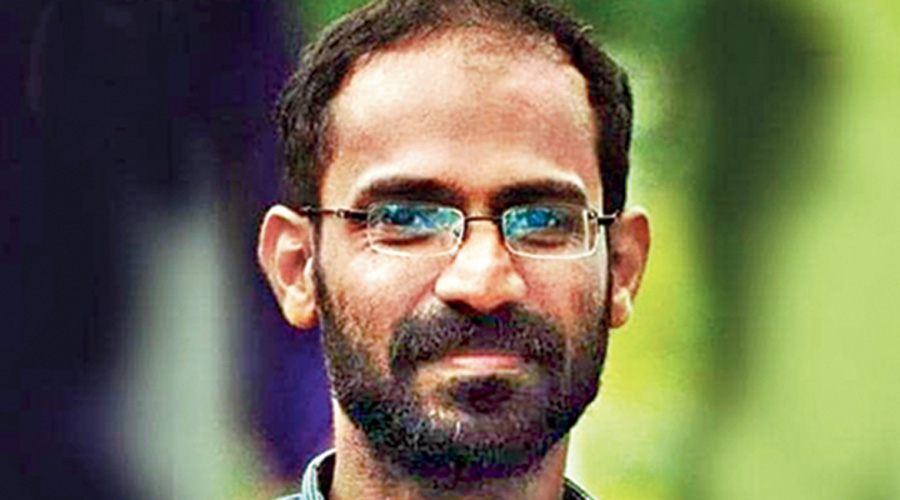
Siddique Kappan, journalist, in jail for 22 months.
Sibal questioned the apex court’s handling of the Zakia Jafri case, in which it upheld a special investigating team’s (SIT) clean chit to then Gujarat chief minister Narendra Modi over the 2002 riots. Sibal had represented Zakia, wife of slain former Congress MP Ehsan Jafri.
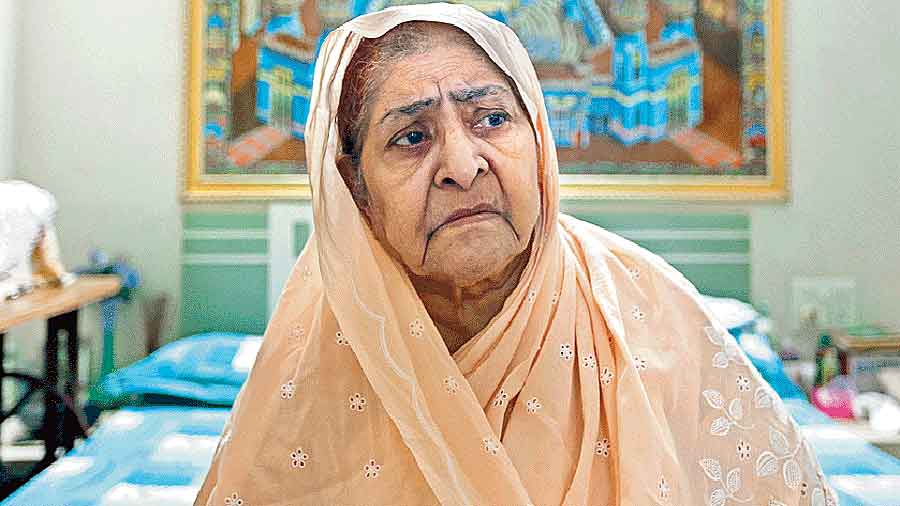
Zakia Jafri, widow of Ehsan Jafri who was killed in the Gujarat riots.
Congress leader Rahul Gandhi had on Friday, replying to a question on the PMLA verdict, said the RSS had captured every institution.
“Every single institution has been captured. Ek bhi nahin bacha (Not one has been spared),” Rahul had said.
Sibal on Saturday virtually echoed Rahul and urged people to “step out on the roads”.
“There is no freedom today. When the entire institutional framework of the country is captured, it impacts the judges who decide on cases related to them (government),” he said.
“This entire matter will have to be dealt with differently. People will have to step out on the roads. If you wait for relief from the Supreme Court, you are nurturing a misconception.”
On Saturday, Justice Chelameswar told a gathering at the Asian School of Journalism in Chennai after releasing a book that it would be a sad mistake if the people believe that the Constitution would on its own safeguard them and their rights.
“If people are not vigilant, if people do not take care of their rights, people do not bother about their liberties, people do not stand up and fight for their lives and liberties, no document, no Constitution can save their lives and liberties,” The Hindu newspaper quoted Justice Chelameswar as saying.
In New Delhi, Sibal said he didn’t feel like talking about these issues publicly, having worked in the Supreme Court for 50 years, but felt that the time had come to speak up.
“If we won’t, who will speak? People say the Supreme Court is a great institution which has given great verdicts. But what is happening on the ground is more important,” he said.
Sibal added: “Are the judgments implemented honestly? They gave the privacy judgment (of 2017, upholding privacy as a fundamental right). When the Enforcement Directorate and income-tax raids your house, isn’t privacy violated?”
Sibal contended that the PMLA judgment had undermined individual liberties.
“If I cheat you, it is up to the inspector to decide whether he wants to prosecute me under the PMLA or the IPC (Indian Penal Code). If Rs 10,000 is recovered from you, that can be presumed to be proceeds of crime and the PMLA will be in operation,” he said.
The PMLA has stringent bail conditions which, too, the recent apex court judgment upheld.
Sibal asked what the Supreme Court had done about hate speeches, citing the recent dharma sansads (religious conclaves) from where calls were reportedly sounded for genocide against Muslims.
“Hate speeches continue unabated. Dharma sansads — where those speeches were made, compelling us to wonder what kind of society we lived in — also continue. One or two persons were arrested but they got bail in a day or two,” he said.
Sena ruling today
Sibal’s expression of scepticism about the Supreme Court’s role comes at a time Uddhav Thackeray’s Shiv Sena, the Congress and the NCP are hoping the top court would intervene to end the culture of engineering defections to topple governments.
The apex court is scheduled to deliver its judgment on Monday in the Maharashtra case, where Sibal is representing Uddhav’s faction, which has not just lost its government but might lose its identity and election symbol to the defectors.
Sibal spoke of a case where he said he had correctly anticipated the unfavourable outcome.
“I won’t name the case but a woman came to me and asked me to fight for the bail of her husband who was in jail for many years. I told her straightaway that no judge would give him bail,” he said.
“Her husband is a famous person in the country. She insisted that she had faith in the judiciary. I moved the Supreme Court and what I predicted happened.”
He added: “In the Zakia case, we presented before the court only authenticated official papers. On similar evidence, convictions have happened in Gujarat riots. But the court didn’t listen.
“I will give you an example. You played Babu Bajrangi tapes. There are many (pieces of) evidence. We know that several cases of arson happened during the Gujarat riots. Intelligence officials called the fire brigade to inform them about the incident. We had the original correspondence between intelligence and the fire brigade. Records showed not one call was taken.
“We asked the court — did the SIT enquire what the fire brigade was doing? No. The SIT obviously didn’t do its job. The SIT did what even a law student knows shouldn’t be done — the strange thing of accepting the version of the accused.”
Babu Bajrangi, a Bajrang Dal activist sentenced in 2012 to 21 years in jail over the 2002 Naroda Patiya massacre of 97 people, had purportedly been caught on tape by Tehelka magazine in 2007 boasting about his role in the rioting. The apex court granted him bail in 2019 after a medical report certified him as blind.

